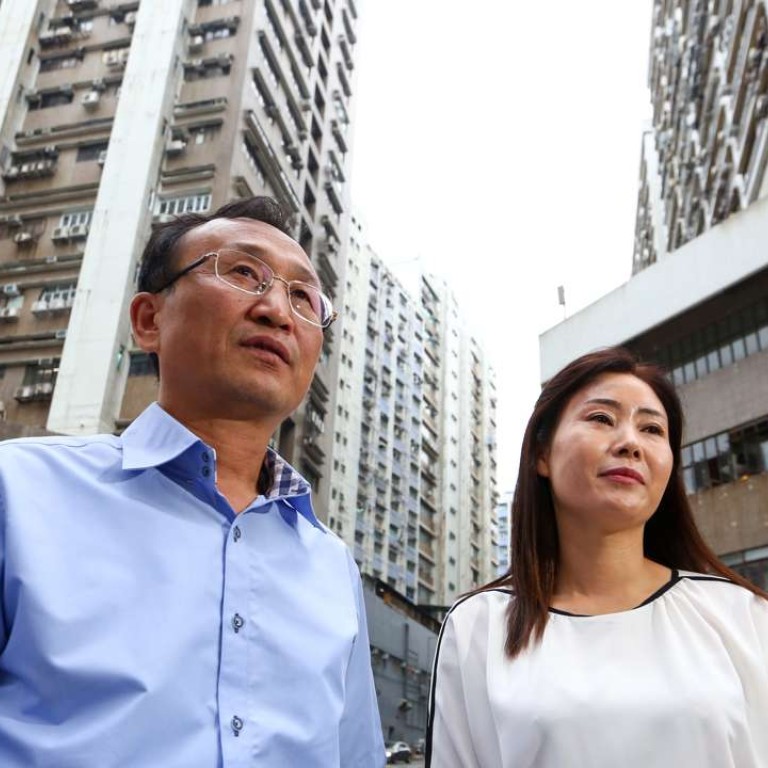
How a North Korean defector’s poems were considered ‘more grievous than murder’
Depictions of daily struggles in North Korea landed idealistic poet in jail for three years before his dramatic escape
To hear North Korean defector Do Myung-hak tell it, his fall from grace as a poet to that of a political prisoner was down to nothing more than his passion for his countrymen and a betraying friend.
Do, 52, who said he could not help but feel constant sorrow for his fellow citizens before he fled to South Korea, was locked up because he privately wrote about struggles in the North and showed it to a close friend, who, in a cinema-like twist, turned out to be a spy for the authoritarian regime.
The festival showcased three films: Abduction: The Megumi Yokota Story, about a Japanese girl who was abducted by North Korea when she was 13; 48m, about the life-or-death distance defectors have to travel when they try to flee the country; and Victory, about 24 defectors seeking justice at the United Nations.
“It became a topic for Hongkongers to talk about ... which in turn opened a window of opportunity,” he said through an interpreter. “It has prompted them to find out why [defectors] do what they do, why they would go to the South Korean consulate and why they wish to leave North Korea.”
Let’s see whether Hong Kong, as part of China, can spread its concern and curiosity over the border
Do hopes the incident and film festival may lead Hongkongers to better understand the challenges faced by defectors.
“From there, let's see whether Hong Kong, as part of China, can spread its concern and curiosity over the border, so that people in the mainland are interested in finding out more about it too,” he said.
Do also hopes public opinion will stop Beijing repatriating defectors and instead treat them as refugees as in countries such as Thailand, where defectors may choose their next stop.
This was an important point, he said, because almost all defectors would have to go through China before fleeing to another country.
Although he fled more than a decade ago, the poet still remembers vividly how he was betrayed and jailed in 2004 for three years.
But his idealism was shattered.
“In North Korea, you don't get to write whatever you like as poets do in other countries,” he said, noting that each of his works was subjected to seven levels of state review before publication.
Two of his poems that were critical of then Supreme Leader Kim Jong-il’s government landed him years of interrogation and ensnared his friends and family.
In North Korea, you don't get to write whatever you like as poets do in other countries
One of the poems was about the day-to-day struggles of ordinary North Koreans, whom Do described as heavily burdened, both physically and mentally. The other told of the grim truth that, regardless of how nutritiously deprived they were, men still had to serve in the army.
Even those who were only able to see out of one eye were not exempt.“The commander would say you only need one eye to take aim anyway,” he said, recreating the gesture of firing a gun.
He claimed he did not originally intend to circulate the poems. However, he changed his mind while having a drink with a friend who was a photographer and whom he considered a confidante.
The friend turned out to be a government spy, and years of questioning followed over a politically sensitive offence that Do described as “more grievous than murder”. He said the authorities worried that his thoughts would spread.
He was released from detention in 2006 after the interrogation of his friends and family yielded nothing. The authorities became increasingly worried they would have to take the blame if they failed to find anything, so they decided to shift the blame to the informant, accusing him of feeding them incorrect information.
Do, concluding his future in North Korea was bleak and fearful that the state would go after him again, decided to flee. He subsequently smuggled his wife and son out of the country.
In his new life, the former poet works in South Korea as a writer and playwright to promote North Korean human rights.

